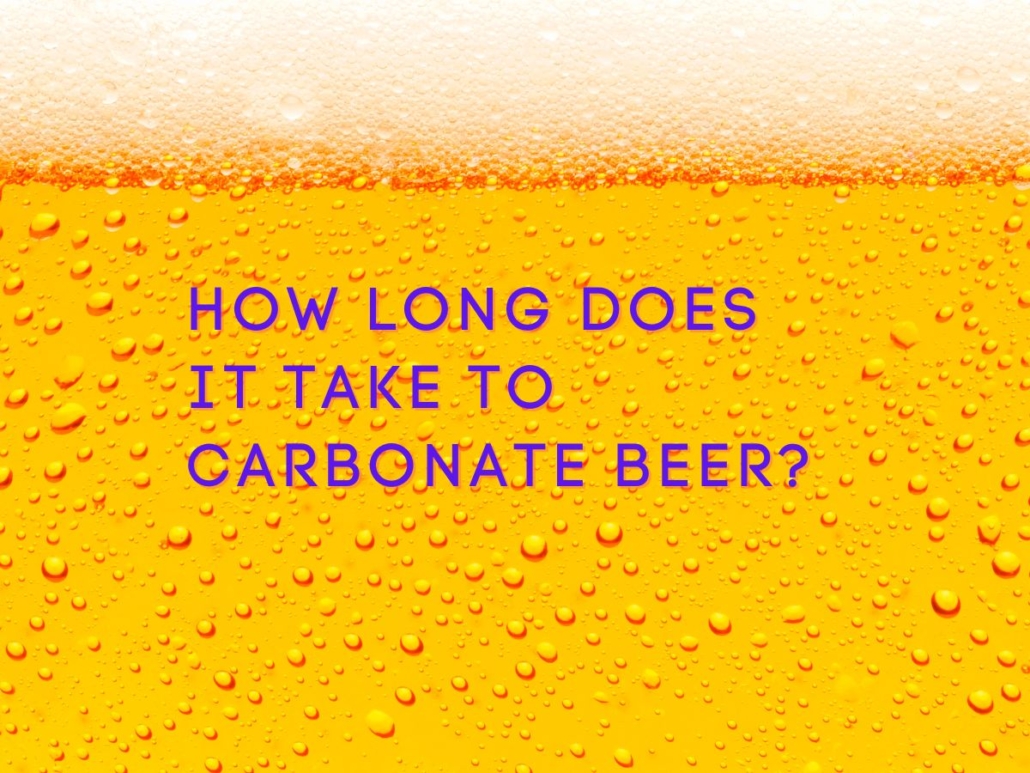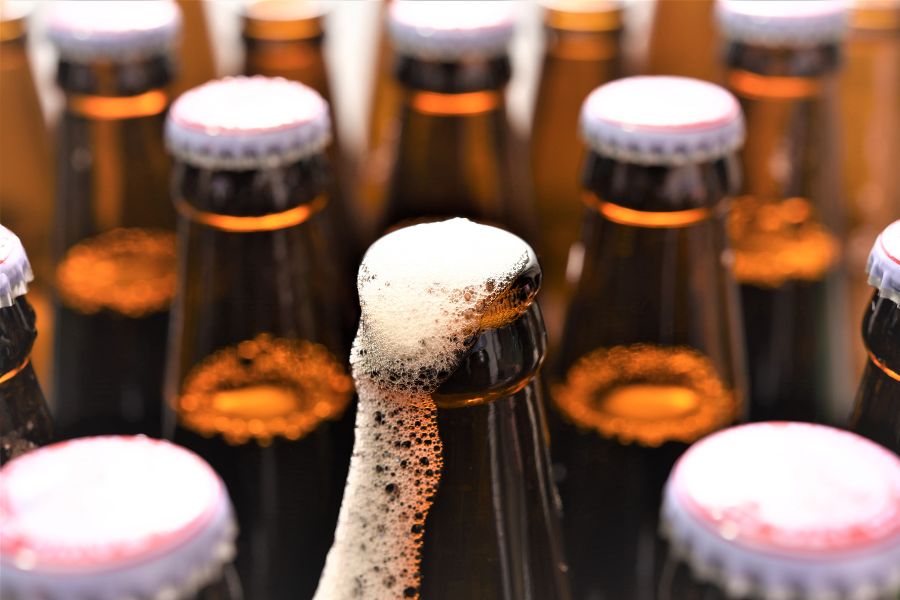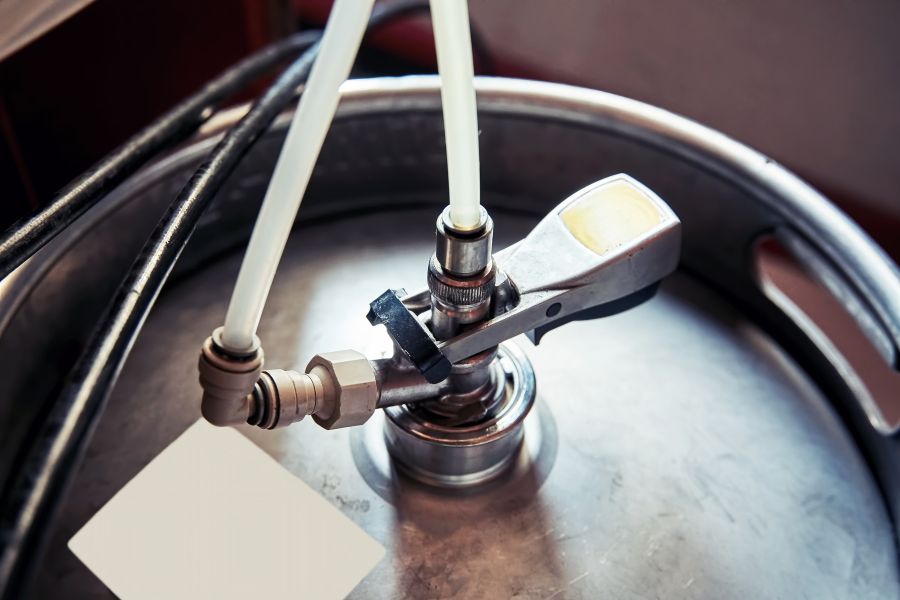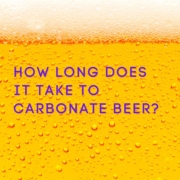How Long Does It Take To Carbonate Beer?

Once you have packaged your beer, whether in bottles or in a keg the wait is nearly over. It is still missing one thing though and that is carbonation.
Just how long does it take to carbonate beer and what is the quickest way for getting the fizz in your brew?
Table of Contents
Carbonating Your Beer
The are a couple of ways of carbonating your home brew and there is also the type of vessel you are carbonating your beer in which could be a bottle, keg, or barrel.
These methods will have some influence over how long it will take to get sufficient carbonation in your beer but you also have other factors such as temperature to consider. Let’s split up the variables first by whether you are bottling or kegging your beer.
How Long Does It Take To Carbonate Bottled Beer?

Bottled beer typically takes 1 – 2 weeks to carbonate and usually, 2 weeks is preferable for full carbonation.
If you have bottled your beer the most common way of carbonating it is to add priming sugar which then ferments in the bottle. The bottle is sealed so the carbon dioxide created by this fermentation goes into solution creating the fizz.
The speed at which bottled beer carbonates is mainly affected by temperature.
If you bottle your beer and then store it in a cool garage, for example, you will not achieve a good carbonation in 2 weeks if at all because the fermentation in the bottle will struggle at low temperatures.
Commercial breweries often have bottle conditioning rooms that are temperature controlled at around 22°C. At this temperature, bottles will carbonate as quickly as possible but not be at too high of a temperature which could create off flavours.
Once your beer has carbonated in the bottle you should move them to a cooler area or cold storage which is best for flavour stability and prolonging shelf life.
How Long Does It Take To Carbonate Beer In A Keg?

Beer can be carbonated in a keg in a much shorter time than bottles. In fact, you can carbonate a beer in as little as 3 days but a more hands-off approach may take around a week or two.
The real difference between carbonating in a keg rather than a bottle is that, most often, we are force carbonating the beer rather than relying on yeast to referment priming sugar in the keg as you would in a bottle.
Although you can add priming sugar to a keg a carbonate the beer using fermentation most brewers prefer to force carbonate with external CO2.
What Is Force Carbonating?
Force carbonating means we are using pressurised CO2 which is supplied in a cylinder. This is connected to the keg with tubing and keg connections and the pressure exerted from the pressurised CO2 and the temperature allow the gas to diffuse into the beer.
Carbonating in a keg means we can cool the beer down in a refrigerator, keeping the beer cold allows more CO2 to be absorbed faster than at warmer temperatures.
The pressure of the CO2 coming from the cylinder into the keg will affect how much carbonation is added to the beer and also how quickly. The pressure, measured in PSI can be adjusted with a regulator attached between the gas cylinder and the keg.
Carbonating In A Keg
A set-and-forget approach to carbonating in a keg involves placing the keg in a refrigerator or kegerator where the beer is to be served.
Cooling the keg makes carbonating more efficient. Use a carbonation chart to calculate the pressure needed to carbonate the beer to the desired level of carbonation. This involves setting the regulator to a certain PSI according to the temperature.
Wait around 1 – 2 weeks for the beer to carbonate before serving.
Force Carbonating In 3 Days!
If you want to carbonate your beer really quickly, in as little as 3 days, then more intervention is needed.
This method involves chilling the beer down as low as possible (1-5°C) and then setting the pressure regulator on the CO2 to between 30 – 40 PSI.
At this much higher pressure and low-temperature gas is much faster at diffusing into solution. This can be aided by rocking the keg to speed up the process.
This can result in a beer being carbonated in 3 days or even less.
It is important to dial back the pressure after force carbonating and vent the keg to avoid over-carbonating the beer. Once you are happy with the carbonation, set the PSI to serving pressure and allow the beer to settle after all the rocking or shaking.




Leave a Reply
Want to join the discussion?Feel free to contribute!